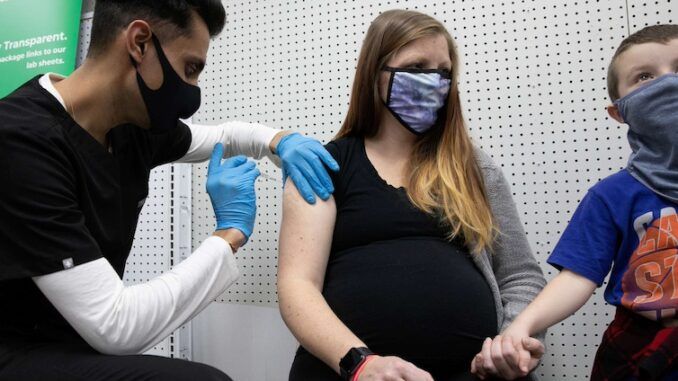
A review published by the British Medical Journal (BMJ) analyzed several studies looking at Covid jabs and severe menstrual disorders. It concluded that nearly all of the studies found that mRNA jabs cause extreme problems with their periods.
“In this review we found evidence supporting an association between the COVID-19 vaccine and menstrual health outcomes,” the review declared in the ‘Conclusions’ section.
Infowars.com reports: The review only mentions temporary changes to menstruation was discovered, despite some research proving otherwise.
“Nonetheless, the bulk of the literature demonstrates that COVID-19 vaccine is associated with temporary changes in menstrual characteristics (cycle length and flow) and menstrual pain,” the review said in the ‘Results’ section.
The BMJ analyzed a total of 53 publications of 11 prospective cohort studies, 11 retrospective cohort studies or registry-based cohort studies and 31 cross-sectional or retrospective case–control studies on Covid injections affecting menstruation.
While not all-encompassing nor necessarily inclusive of the BMJ review, some research into the particular topic includes the following quotes from various studies:
“…there have been accumulating discussions on social media and blogs indicating that women have experienced menstrual changes, including altered menstrual duration, frequency, regularity, and volume (heavier bleeding and clotting), increased dysmenorrhoea and worsened premenstrual syndrome (PMS) (e.g. Morgan 202112). More recent anecdotal reports of menstrual changes after vaccination for COVID-19 have fuelled vaccine hesitancy or refusal,” the study (The COVID-19 pandemic and the menstrual cycle: research gaps and opportunities) said in the ‘Menstrual cycle features and the COVID-19 pandemic’ section.
“COVID-19 vaccination may be associated with short-term changes in usual menstrual cycle length, particularly among women whose cycles were short, long, or irregular before vaccination,” the study (A prospective study of the association between SARS-CoV-2 infection and COVID-19 vaccination with changes in usual menstrual cycle characteristics) said in the ‘Conclusion’ section.
“This systematic review represents the most contemporary and largest evidence on the predictors and rate of menstrual problems after COVID-19 vaccination, including 78 138 patients. Furthermore, it shows that a significant number of women (52.05%) have experienced menstrual abnormalities after the COVID-19 vaccine,” the study (Menstrual abnormalities after COVID-19 vaccines: A systematic review) said in the ‘Discussion’ section.
“Analysing the menstrual flow more, we saw that 24.5% of the patients had increased flow, while 15.5% had reduced flow which for both changes in the flow, the p-value was 0.017. However, 23.65 showed delayed periods, and 51.6% showed no changes. The changes in the timing were significant,” the study (Short Term Effect of Corona Virus Diseases Vaccine on the Menstrual Cycles) said in the ‘Results’ section.
“Approximately 25% of vaccinated participants reported a change in their menstrual cycle after vaccination; the majority reported changes after their second dose (56%) as compared with their first (18%) and third (14%) doses. The most commonly reported changes were irregular menstruation (43%), increased premenstrual symptoms (34%), increased menstrual pain or cramps (30%), and abnormally heavy or prolonged bleeding (31%). High self-reported perceived stress levels compared with low perceived stress (OR, 2.22; 95% CI 1.12-4.37) and greater body mass index (OR, 1.04; 95% CI 1.00-1.07) were associated with greater odds of experiencing the menstrual cycle changes after the vaccination,” the study (COVID-19 vaccination and changes in the menstrual cycle among vaccinated persons) said in the ‘Results’ section.
Source link

